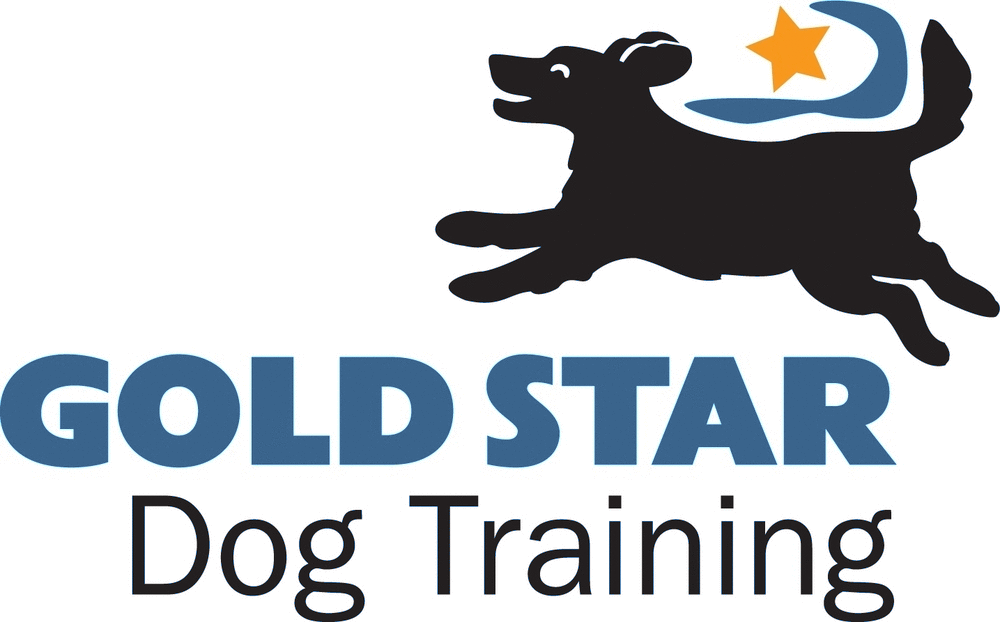Dog-Centered, People-Friendly Training
Whether you’ve just brought home a wiggly new puppy, or adopted a rescue dog, or even want to work with a dog you’ve had for years, Gold Star Dog Training would be thrilled to help you with your training needs and goals. Our classes and programs focus on giving you the tools and knowledge to effectively meet your dog's needs and your training goals.
Gold Star programs are...
Highly student-focused—we are adept at explaining concepts and helping every client feel successful.
Hand-crafted—all classes have been designed by Gold Star Dog Training, and refined continuously based on new learning and practical know-how about what works in a class setting.
Designed with meaningful, effective training experiences and curricula—that our clients can use long after class ends.
Fun and for everyone--a sense of humor, enthusiastic teaching style, and ability to work with a wide range of students are traits our clients seem to like about our programs!
Based on positive reinforcement training—this means we never use force, pain, intimidation, or fear when working with a dog (or a human!).
Easy to understand and apply—we strive to give you tools that you can use throughout your dog’s life.
Ongoing support after class ends—all classes come with free “tech support” for life…we’re available to you by phone and email even after class ends! A healthy, balanced, mutually-respectful relationship is the foundation for all training goals. Whether you seek a canine partner for therapy dog work, a search and rescue dog, a competitive sport dog, or simply a wonderful home companion that your guests and neighbors love as much as you do, this relationship is critical.
We use positive reinforcement training—this means we never use force, pain, intimidation, or fear when working with a dog (or a human!). Our approach to helping you train your dog is easy to understand and apply, and we strive to give you tools that you can use throughout your dog’s life.
We’d be happy to describe our approach to you and answer any questions you have before signing up for any program. Just contact us!
What your Dog Wants you to Know Before you Start Training
To have a successful relationship with your dog, you must understand her; this involves understanding how your dog experiences the world. After all, dogs are "strangers in a strange land", another species with different needs, language, and sensory perceptions. To be happy and successful in our world, we must teach them what we expect. To succeed in our world, they need the help of a patient, consistent, knowledgeable, gentle guide.
Thus, it is our jobs as dog owners, custodians of these wonderful beings we call dogs, to help them be functional, balanced, fulfilled, welcomed members of our world. To do this, we must understand — and work within — their world. And…working with your dog should be FUN for both of you!
A successful dog-handler relationship is based on providing for our dog’s mental and physical needs, and working with how dogs learn and communicate. Dogs need...
Proper Exercise and Mental Stimulation
A tired dog is a good dog! Many behavioral problems stem from a dog who has too much energy, is bored, or is not allowed to use his body and brain. Each dog's exercise requirements vary, and there are lots of creative ways to provide exercise and mental stimulation for your dog that also fit within your interests and schedule!
Companionship
Dogs are social, pack animals. Their wiring makes them wonderful companions. Isolation, lack of socialization, and not having a wide range of interactions with you, your family, and others makes for an unbalanced, unhappy dog. If you want a dog you can take anywhere and who is comfortable and relaxed in a wide variety of new situations, then you must work on socializing your dog.
Understanding the Rules of the Game
Your dog should clearly understand the rules of the game-of living with you and living within our world. What is acceptable and what is not should be clear and consistent. And, it's your job to teach your dog these rules in a consistent, gentle, fair manner. Whenever your dog makes a choice to do something...whether it is something you like, sitting politely before getting food, or something less desirable, like begging at your table...the response from you should always be the same. How else can he learn how to happily exist in a culture that's not his, with a language different from his own? He learns from your leadership-fair, gentle, consistent. You communicate the rules of the game through every interaction with your dog as well as through training. In other words, dogs learn most quickly when they know what is expected.








